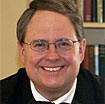Commentary on 1 Thessalonians 5:1-11
Mr. Harold Camping, president of California’s Family Radio, predicted that three million people would be saved, the rest perish, on May 21, 2011.
When that did not happen (though a “spiritual salvation” was subsequently alleged on that date), the End of the World was recalculated for October 21, 2011.
A website, judgementday2011.com, offers the “Top 10 Reasons You Won’t Be Saved in the Rapture,” which includes “stealing candy from the store.” The website’s advice for being “Rapture-Ready” is predictably sparse, since for most of us it’s already too late: “God needs a full commitment, much like that needy prom date from way back in your high school days.”
You can’t make this stuff up. No, strike that. Somebody already has.
May we now pause for a word from Christian Scripture? Here, if I read them alright, here are Paul’s ten counsels in 1 Thessalonians 4:13–5:11 about the return of Jesus Christ.
1. Concerning those who have died before Christ’s return, “you [are] not to grieve as others do who have no hope” (4:13). “Therefore encourage one another with these words” (4:18). This reaches into the lectionary for a previous Sunday, but it’s important to get properly oriented. To paraphrase: Calm down. Be of good cheer. The God who raised Jesus from death is in charge, and “God will bring with him those who have died” (4:14).
2. “Concerning the times and the seasons … you yourselves know very well that the day of the Lord will come like a thief in the night” (5:1-2; cf. Matt 24:42-44). The thief has not given advance notice to Mr. Camping, to Mr. Black, or to anyone who may be reading this. Not even the Son knows, or the angels in heaven (Mark 13:32).
3. When God decides to shut everything down, or reboot it, it will come like a pregnant woman’s labor pains (1 Thessalonians 5:3b). It will be abrupt, impossible to clock, and inexorable.
4. “Sudden destruction” will likely fall on complacent assurance of “peace and security” (verse 3a), perhaps an allusion to imperial Rome’s motto, pax et securitas (see Psalms of Solomon 18:8 and Josephus). The Almighty has a way of unsettling this world’s cocksure governments, which invest trust in their own power instead of God’s.
5. Christ’s siblings are “sons of light and sons of the day” (1 Thessalonians 5:5): an image that blends biblical association of light with God (Job 29:3, Psalm 18:28; Isaiah 60:19-20), “the Day of the LORD” (Isaiah 13:6, 9; Amos 5:18, 20), and the contrast of “staying awake/falling asleep” (1 Thessalonians 5:6a). With respect to Jesus’ return, Christians are not in the dark.
6. Neither should the church lull itself into religious complacency: “keep awake and be sober” (verse 6b). Nighttime reveals who is alert, who is asleep, and who’s drunk (verse 7). Christians do not wear their responsibilities lightly; they conduct themselves sensibly and with restraint (see also Mark 13:33-37; 1 Peter 5:6-9).
7. “Soldiers of Christ, arise and put your armor on” (cf. 1 Thessalonians 5:8). Please cut Paul and Charles Wesley some slack: they are not advocating a Christian crusade. The metaphor intends to take seriously the genuine struggles that Christians face to remain faithful; the emphasis is on defensive armor — the breastplate and the helmet (cf. Ephesians 6:10-17). Paul expressly refers to our protection by faith (or “trust”), love, and hope (verse 8): the same triad that opened this letter (1:3) and whose elements recur throughout (e.g., 2:19; 3:2-112).
8. Guarding the heart as a breastplate, faith and love are vitally connected (3:6; 1 Corinthians 13:2; Galatians 5:6; Philemon 5). The emphasis in 1 Thessalonians 5:8b-9 lies on the Christian’s hope: “God has destined us not for wrath but for obtaining salvation through our Lord Jesus Christ” (verse 9). Once again: God is the train’s engineer; our final stop is salvation — restoration, healing, wholeness — through the benefit of our conductor, the Lord Jesus.
9. Christ died for us that we may be made whole and may live with him (5:10; cf. 1:9-10; 4:16-17; Romans 5:8; 1 Corinthians 15:3; Galatians 2:20). This is true of Christians still alive and alert as “children of the day” (1 Thessalonians 5:5-6); it is true also of those who have fallen asleep in death (4:13, 15). Because the apostle does not speculate on postmortem life until redemption, neither need the preacher. Let us concentrate on what concerns Paul: assurance of a future salvation that now brings to the surface, like a poultice, the believer’s faith, love, and hope.
10. Finally, from heart to heart: “Encourage one another and build up each other, as indeed you are doing” (5:11). In times of anxiety and strife Christians cannot go it alone, nor should they try. We are responsible to one another for encouragement and bolstering in faith, love, and hope. Others need our support in being Christian, and we need theirs.
The preacher who opts for 1 Thessalonians 5:1-11 as this Sunday’s text can adopt the very strategy of the preacher who wrote it. Paul was confronted by Thessalonian despair: believers grieved by the death of sisters and brothers in Christ who died before his return (4:13). Were they forever lost? No. Christ will never forsake any of those who belong to him (4:14-18).
Paul’s reply is an excellent specimen of pastoral theology: Take the problem — in this case, apocalyptic anxiety — reframe it, and help the church see the picture more fully and with sharper clarity. Whether it’s last October’s Judgment Day that never came, or last Tuesday’s funeral, or next month’s observance of Advent, Christians need help in thinking straight about eschatology. This Sunday Paul offers splendid resources to help Mr. Camping, his listeners, yourself, and those seated in a pew near you.

November 13, 2011